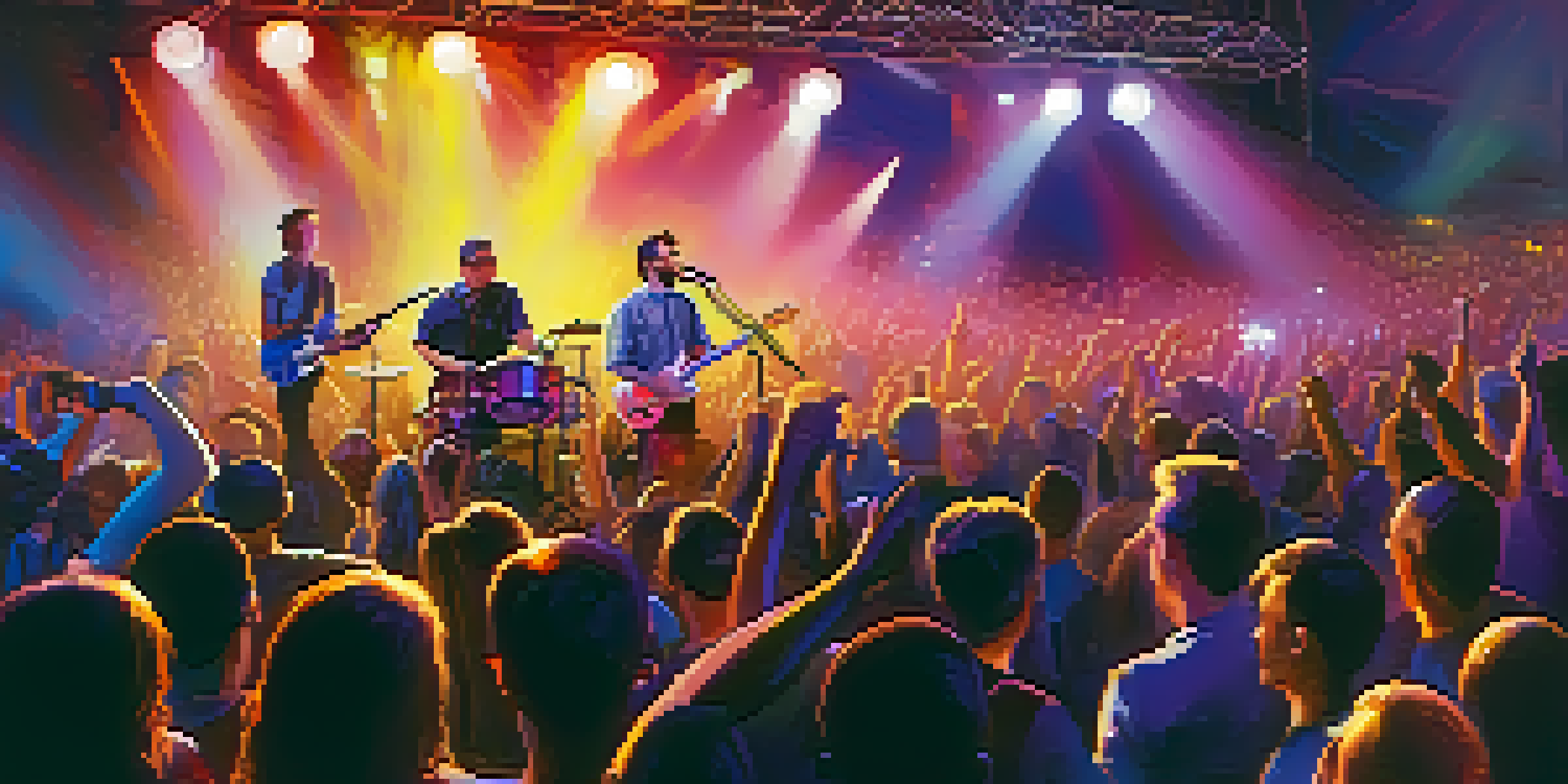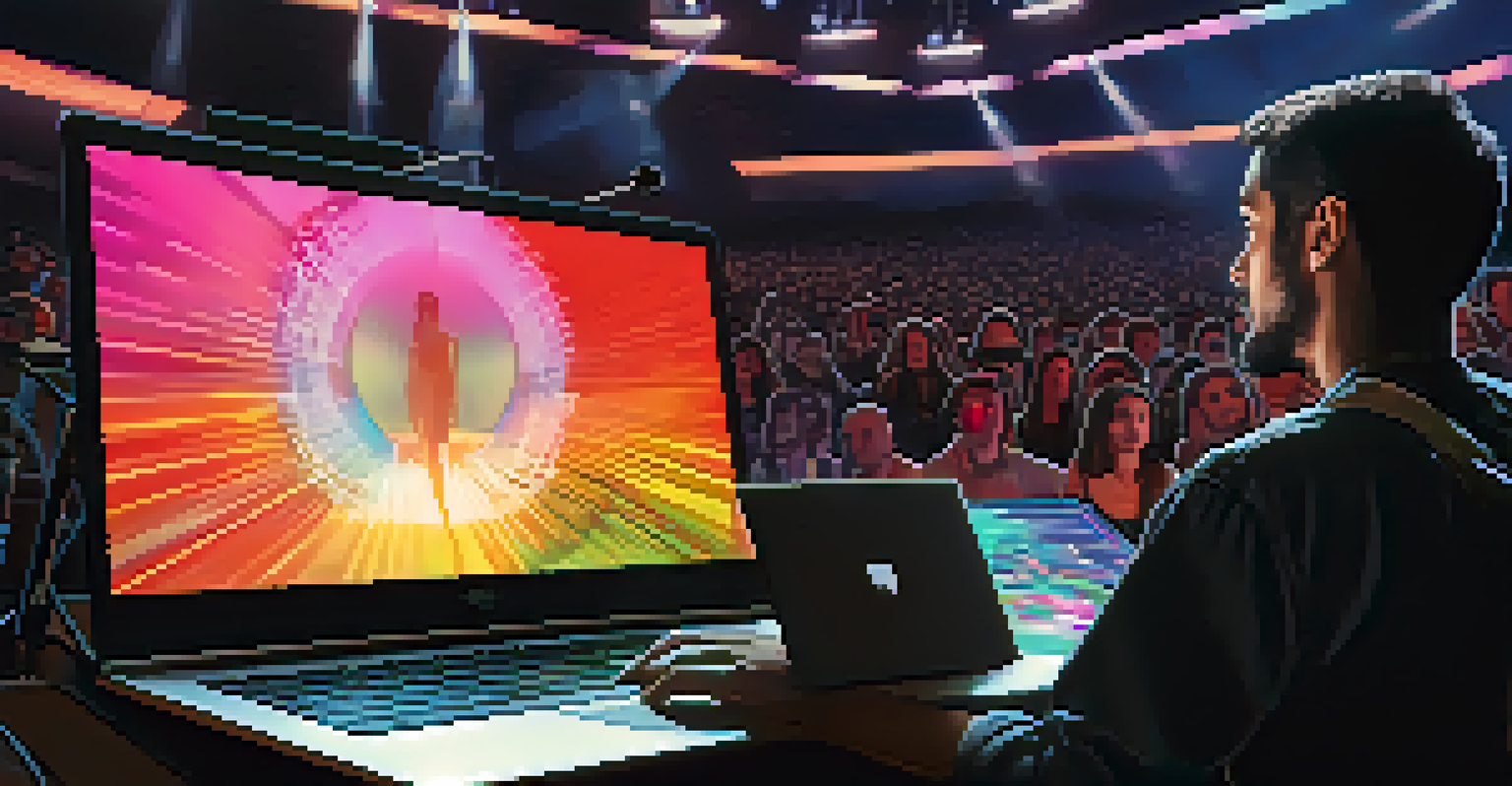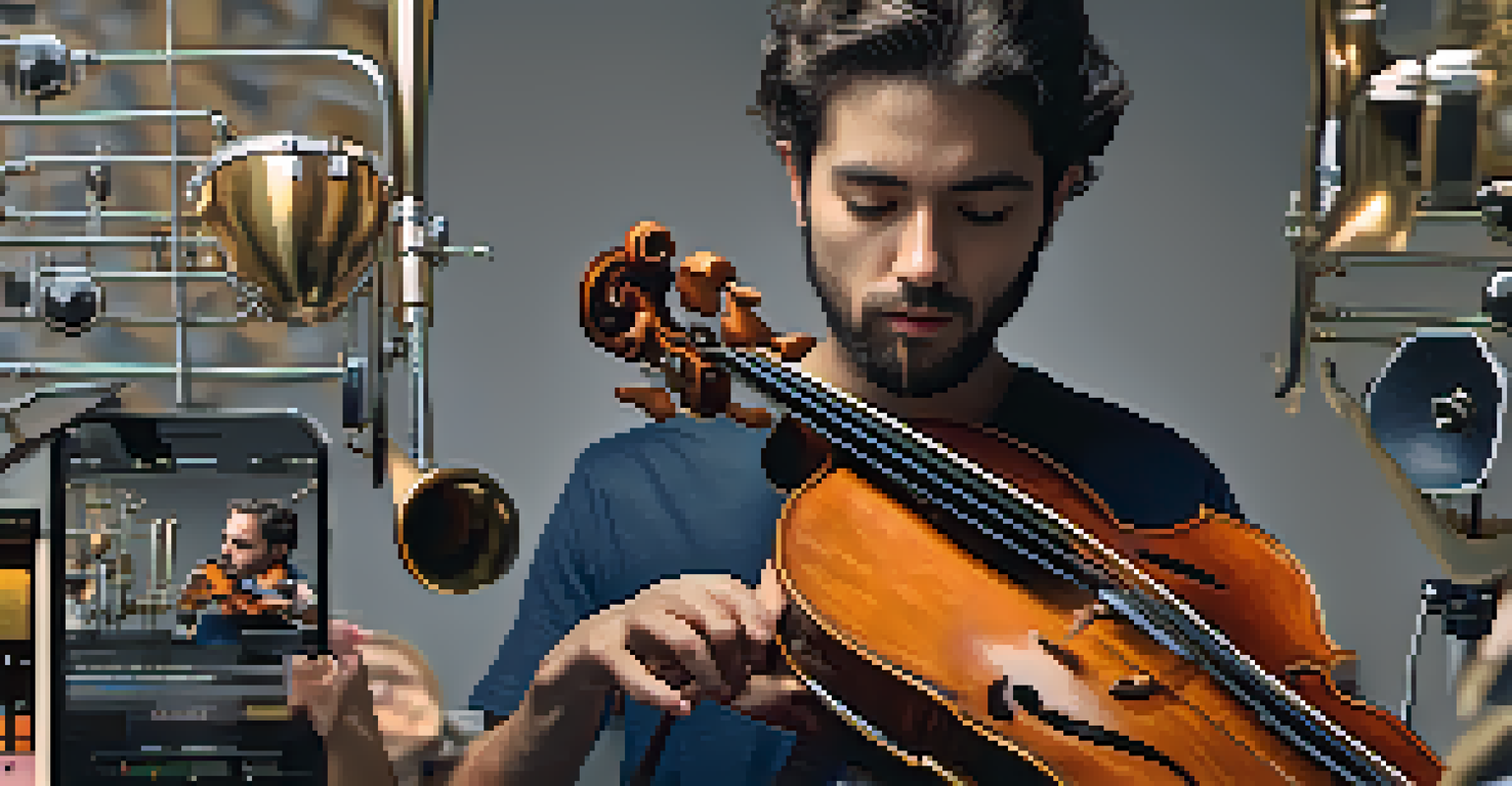AI and Its Impact on Live Music Production and Performance

Understanding AI's Role in Live Music Production
Artificial Intelligence (AI) is making waves in various industries, and live music production is no exception. From sound engineering to logistics, AI tools help streamline processes, ensuring that everything from the mixing board to the lighting setup runs smoothly. Imagine having a virtual assistant that can predict the best sound settings based on the venue and audience, making the experience more immersive.
Music is the shorthand of emotion.
One of the most exciting aspects of AI in music production is its ability to analyze vast amounts of data. For instance, AI can sift through past performances to identify patterns, helping producers refine their approaches. This data-driven insight not only enhances the quality of sound but also allows artists to focus more on their performance rather than the technical aspects.
In essence, AI acts as a collaborative partner in the production process, enhancing creativity and efficiency. As technology continues to evolve, we can expect AI to play an even larger role, making live music not just an auditory experience but a well-orchestrated event.
Enhancing Audience Engagement Through AI
Engaging the audience is crucial in live music, and AI is changing the game here as well. With tools like sentiment analysis and audience feedback systems, producers can gauge real-time reactions and adjust performances accordingly. For instance, if the crowd responds positively to a particular song, artists can extend the set or introduce similar tracks to keep the energy flowing.

Moreover, AI can personalize the experience for attendees. Imagine receiving a notification on your phone suggesting the best spot in the venue based on your music tastes. This level of personalization not only enhances the concert experience but also fosters a deeper connection between the artist and the audience.
AI Enhances Live Music Production
AI streamlines sound engineering and logistics, allowing artists to focus on their performance.
Ultimately, AI's ability to process and analyze audience data helps create unforgettable experiences. By bridging the gap between performers and fans, AI ensures that every show feels unique and tailored to those in attendance.
AI's Role in Live Music Logistics and Planning
Logistics can be a nightmare in live music production, but AI is here to help. From scheduling rehearsals to managing equipment inventory, AI systems can optimize these processes, ensuring everything runs like clockwork. Picture a scenario where an AI program tracks the availability of all team members and resources, automatically creating a schedule that maximizes efficiency.
Technology is anything that wasn’t around when you were born.
Furthermore, AI can predict potential issues before they arise. For example, by analyzing weather patterns, an AI tool can provide insights on the likelihood of rain affecting an outdoor concert. This foresight allows event organizers to make informed decisions, such as moving to a backup location or adjusting set times.
With AI managing the logistical side, artists and their teams can focus on creativity and performance. This shift not only enhances productivity but also contributes to a more enjoyable experience for everyone involved.
AI-Powered Visuals: Transforming Performance Art
Visuals play a significant role in live music, and AI is revolutionizing this aspect as well. By using AI algorithms, producers can create stunning, dynamic visuals that respond to the music in real-time. Imagine a light show that changes colors and patterns based on the beat or the mood of a song, creating a captivating experience for the audience.
This technology allows for a level of creativity previously unimaginable. Artists can collaborate with AI to generate visuals that enhance their performance and tell a story. For example, a band might use AI-generated animations that reflect the themes of their songs, creating a multi-sensory experience for fans.
Audience Engagement Transformed
AI enables real-time audience feedback and personalized experiences, creating a deeper connection between artists and fans.
As AI continues to advance, the possibilities for visual storytelling in live music will only expand. This integration not only captivates the audience but also pushes the boundaries of artistic expression.
AI and the Evolution of Musical Genres in Live Settings
AI is also influencing the evolution of musical genres, particularly in live settings. By analyzing trends and audience preferences, AI can help artists experiment with new sounds and styles that resonate with their fans. This dynamic interplay between technology and creativity fosters innovation, leading to the emergence of hybrid genres that blend different musical elements.
For example, an artist might take inspiration from AI-generated compositions to create a unique live set that incorporates electronic beats with traditional instruments. This fusion not only attracts diverse audiences but also encourages collaboration among artists from various genres, enriching the live music landscape.
As AI continues to provide insights into musical trends, artists are better equipped to adapt and evolve their sound. This ongoing evolution not only benefits musicians but also keeps fans excited about what’s next in the live music scene.
The Role of AI in Artist Development and Training
AI is also making strides in artist development and training, offering tools that help musicians hone their craft. For instance, AI-driven applications can analyze a performer’s technique and provide personalized feedback for improvement. Imagine having a virtual coach that listens to your practice sessions and offers tips to refine your skills.
Furthermore, AI can help artists discover their unique sound by analyzing their past performances and suggesting areas for growth. This insight can be invaluable for emerging musicians looking to carve out their niche in a crowded industry. By leveraging AI, artists can develop a more authentic style that resonates with their audience.
AI Supports Artist Development
AI tools help musicians refine their skills and discover their unique sound through personalized feedback and analysis.
In this way, AI serves not just as a tool but as a mentor, guiding artists on their journey. This support can empower musicians to reach their full potential and thrive in the competitive world of live music.
Challenges and Ethical Considerations of AI in Music
While AI offers exciting possibilities for live music, it's essential to address the challenges and ethical considerations that come with it. One significant concern is the potential for AI to replace human creativity. As algorithms become more sophisticated, there’s a fear that the unique touch of human musicianship may be overshadowed by technology.
Moreover, issues surrounding data privacy and ownership arise as AI analyzes audience behavior and preferences. Artists and producers must navigate these complexities to ensure that they respect their fans' privacy while benefiting from data insights. Transparency in how data is used will be crucial to maintaining trust with audiences.

Ultimately, as we embrace AI's capabilities, it's vital to strike a balance between technology and human artistry. By addressing these challenges head-on, we can harness AI's potential while preserving the essence of live music.